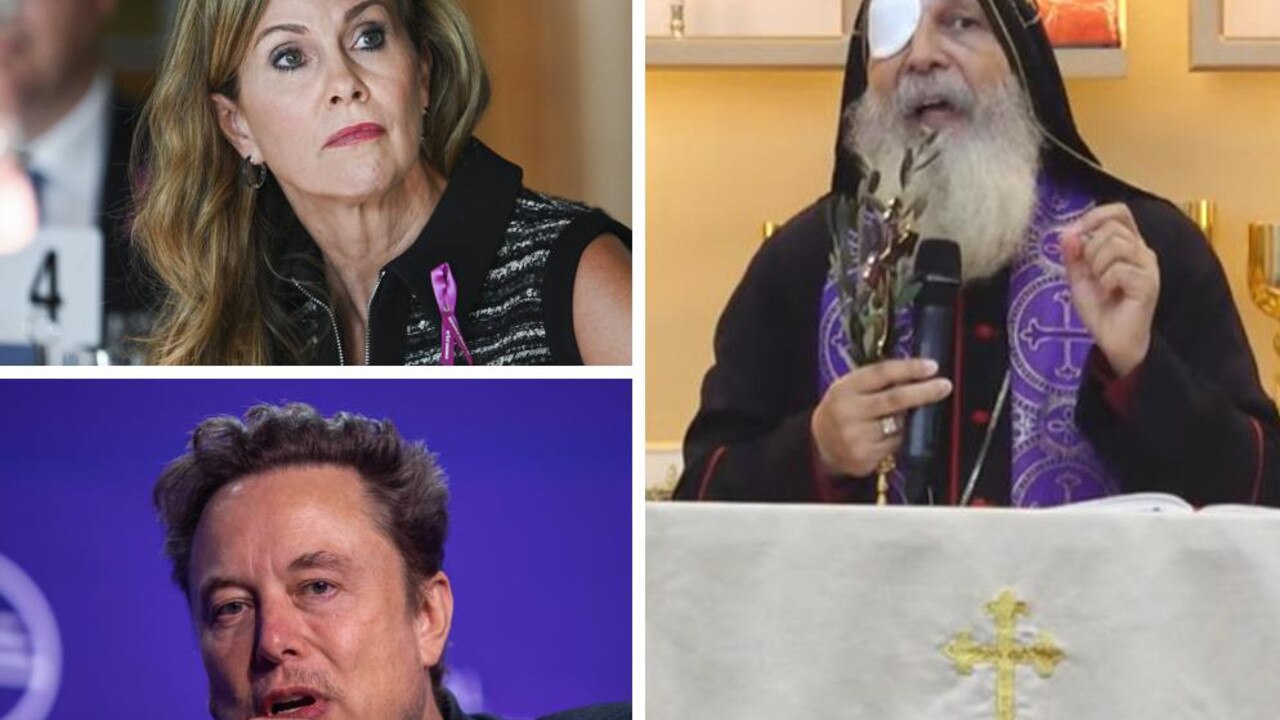Australia’s eSafety Commissioner has argued the global removal of a video depicting the violent stabbing of a Sydney bishop from X – formerly Twitter – is a “reasonable step”, amid revelations the clip can still be seen using a VPN.
Lawyers for the internet watchdog and the social media site owned by billionaire Elon Musk faced off in the Federal Court on Friday, following a row over the clip depicting the April 15 attack on Bishop Mar Mari Emmanuel.
The commissioner is pushing for the power to enforce global take-down orders for material that is violent and extreme, arguing worldwide censorship of offensive material is reasonable in light of the Australian parliament’s online safety legislation.
Video of the violent stabbing attack, which put the bishop in hospital with serious injuries, quickly circulated online and Julie Inman Grant, in the role of the commissioner, ordered X to remove access to it for Australian users, slapping the video with a Class 1 classification reserved for high-impact violent or child sex abuse material.
But while the company “geoblocked” the content, or restricted its visibility in Australia, it has not removed the footage from worldwide consumption and Australian users can still access the video via an VPN.
Tim Begbie KC, appearing for Ms Grant, argued to Justice Geoffrey Kennett in Sydney on Friday the company might need to institute a global removal to comply with the original notice.
“This is not a proceeding about a free speech policy debate, it’s about the application of the online safety act and the provisions of that act prepared by the parliament,” he said.
“If truly the only step you can take because of the way you have set up your systems, is global removal, then that is a reasonable step.”
Mr Begbie noted VPN users accounted for about a quarter of all internet users in Australia and so the material was still accessible to large sections of the population.
She told the court eSafety staffers had tested the company’s compliance with the order with an iPad and VPNs.
The staffers found that while logged on to a child’s account, they could access the video, he said.
Mr Begbie further argued that X had the tech and “wherewithal” to organise global take-downs and had policies that supported global removal in certain circumstances.
“X doesn’t stand for ‘global removal is bad’ in some pure sense,” he said.
“X’s own policies repeatedly refer to certain stances in which X will ensure global removal.
“They don’t think global removal is unreasonable, per se, and I pause to say, to their credit, they don’t think that.
“They have got policies which ensure a range of very harmful content will be removed. That’s what responsible services do. There’s nothing wrong with that.”
“The real position is this, X says reasonable means what X wants it to mean.
“Global removal is reasonable when X does it, when it wants to do it.
“But it becomes unreasonable when X is told to do it by the laws of Australia.”
The court heard other social media platforms, including Meta, had made the video “wholly inaccessible” to Australian users following Ms Grant’s notice.
“We rather suspect it did involve a complete global removal,” Mr Begbie said.
He also said there was no “lawful obstacle” under US law to prevent the global removal of offensive material.
Mr Begbie also defended the validity of the notice itnot self.
Take-down orders are based on a national classification code that categorises material based on its content and impact and Mr Begbie said “all essential principles” to determine the video’s class 1 status had been considered.
The notice is also directed to the few seconds of the stabbing attack footage, Mr Begbie said, and not the footage prior to or immediately after the event.
“Were not talking about footage that doesn’t include those few graphic moments,” he said.
The court case will test how far national laws can traverse national borders in the social media age.
X owner Elon Musk, posting to the platform, warned national laws could be used to enforce global censorship if the commissioner’s position was upheld.
“Our concern is that if any country is allowed to censor content for all countries … then what is to stop any country from controlling the entire internet?” he wrote.
X’s Global Governance Affairs division stated it would challenge the take-down order.
“This was a tragic event and we do not allow people to praise it or call for further violence,” X stated.
“There is a public conversation happening about the event, on X and across Australia, as is often the case when events of major public concern occur.
“While X respects the right of a country to enforce its laws within its jurisdiction, the eSafety Commissioner does not have the authority to dictate what content X’s users can see globally.
“We will robustly challenge this unlawful and dangerous approach in court.
“Global take-down orders go against the very principles of a free and open internet and threaten free speech everywhere.”
Bishop Emmanuel has come out in support of X in the court battle.
On his return to the pulpit after the attack, the bishop delivered a fervent sermon in defence of free speech.
“For us, to say that because of this freedom of speech, it is causing dramas and dilemmas, therefore everything should be censored, then where is democracy?” he said.
